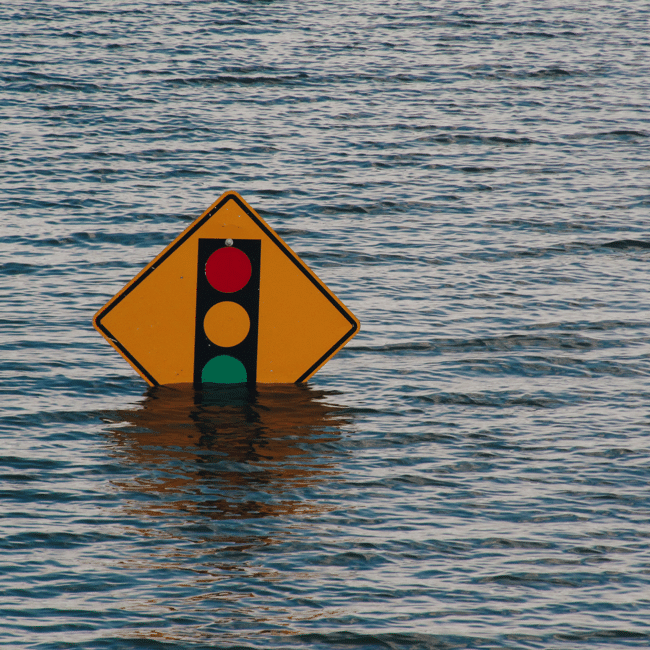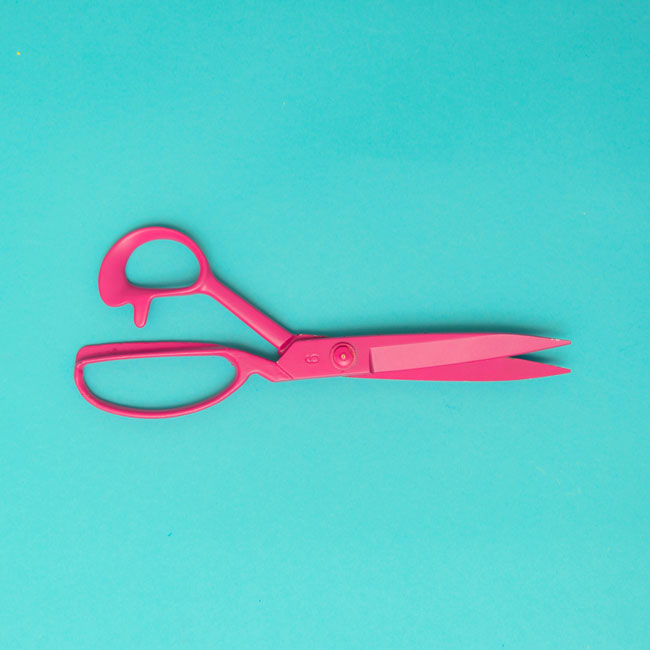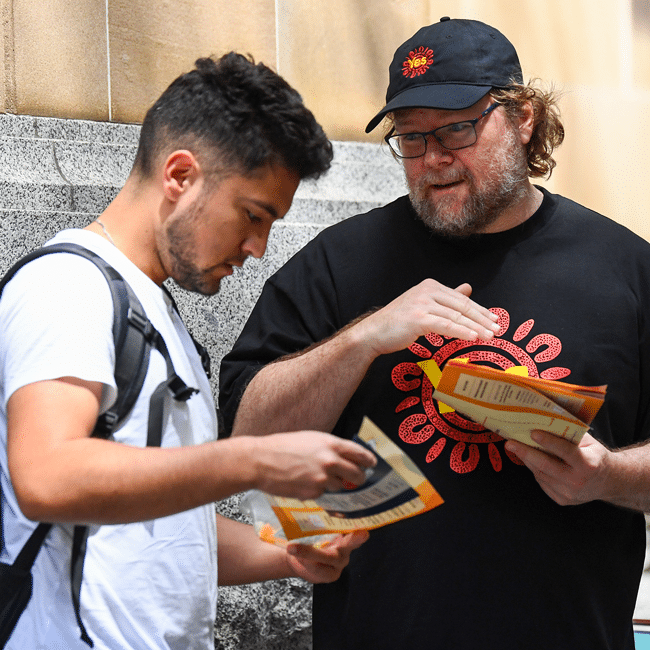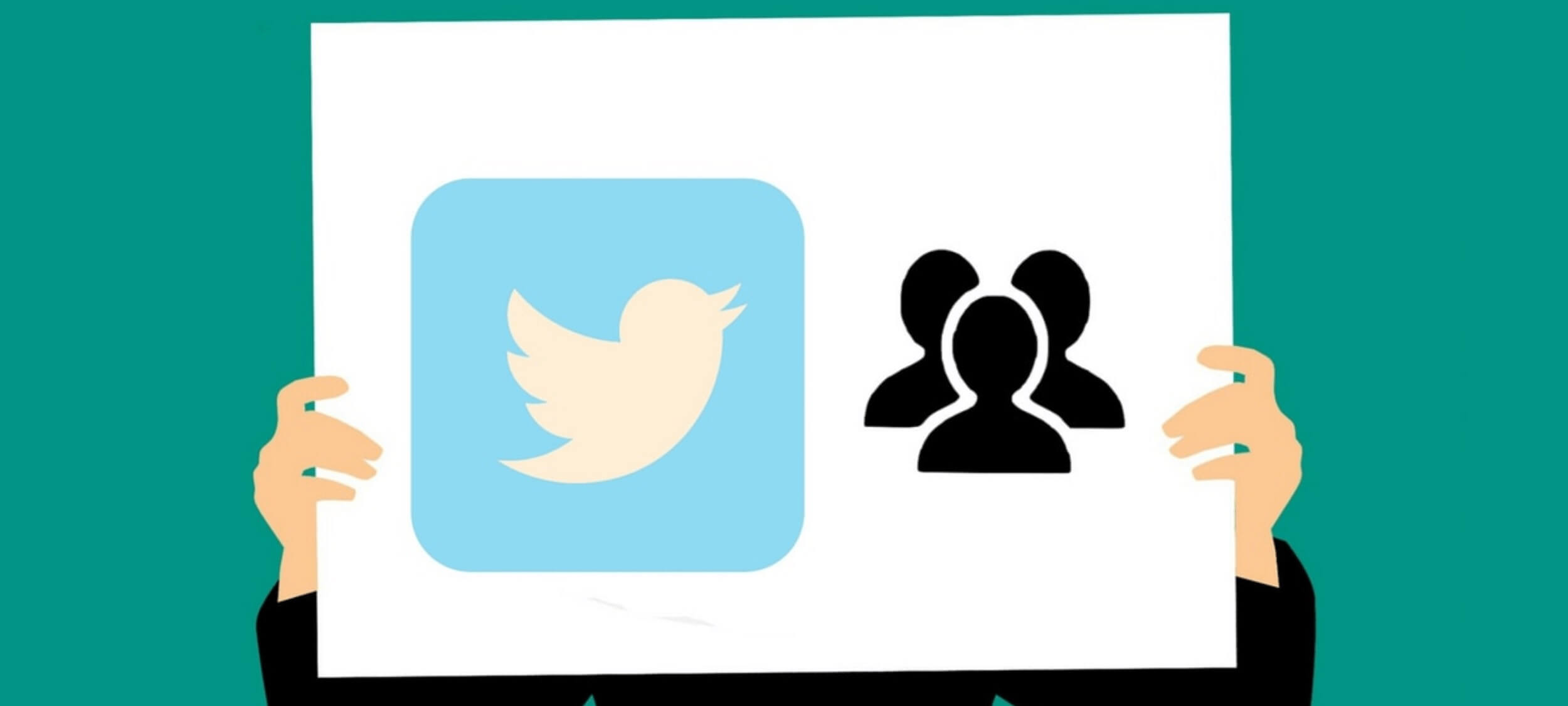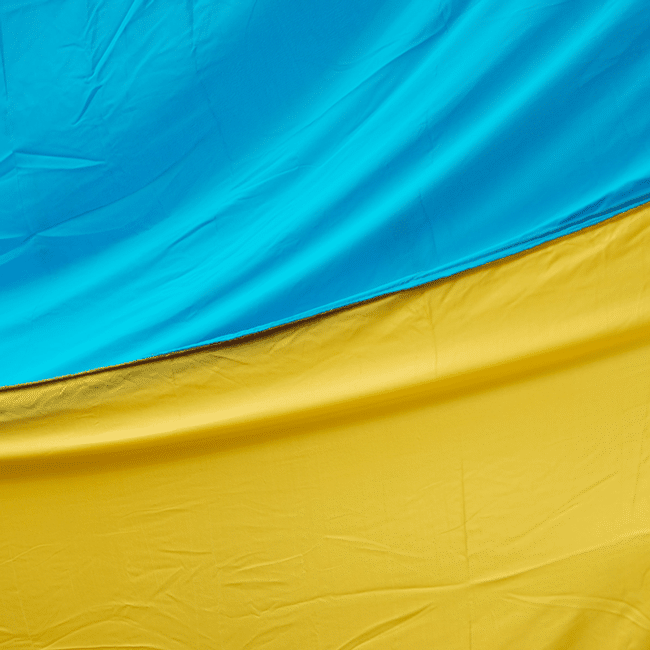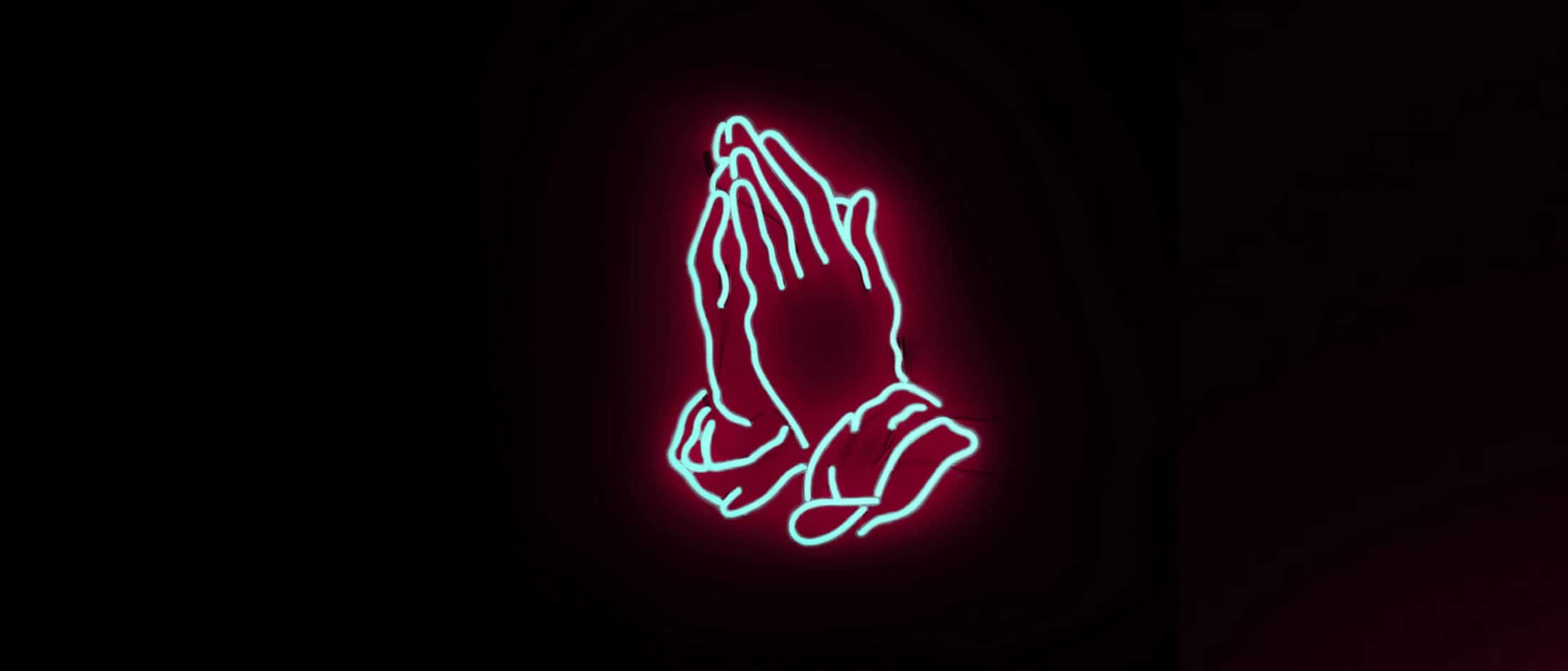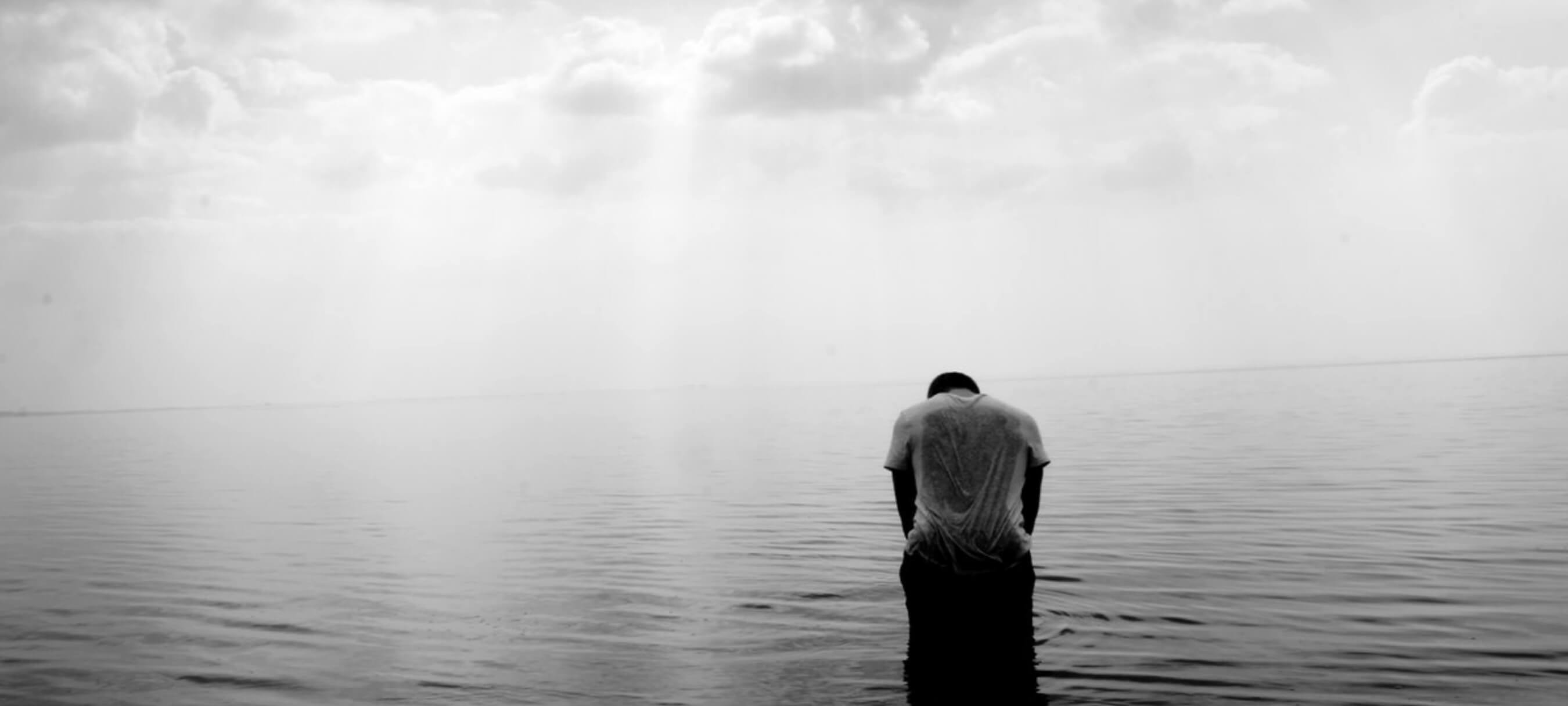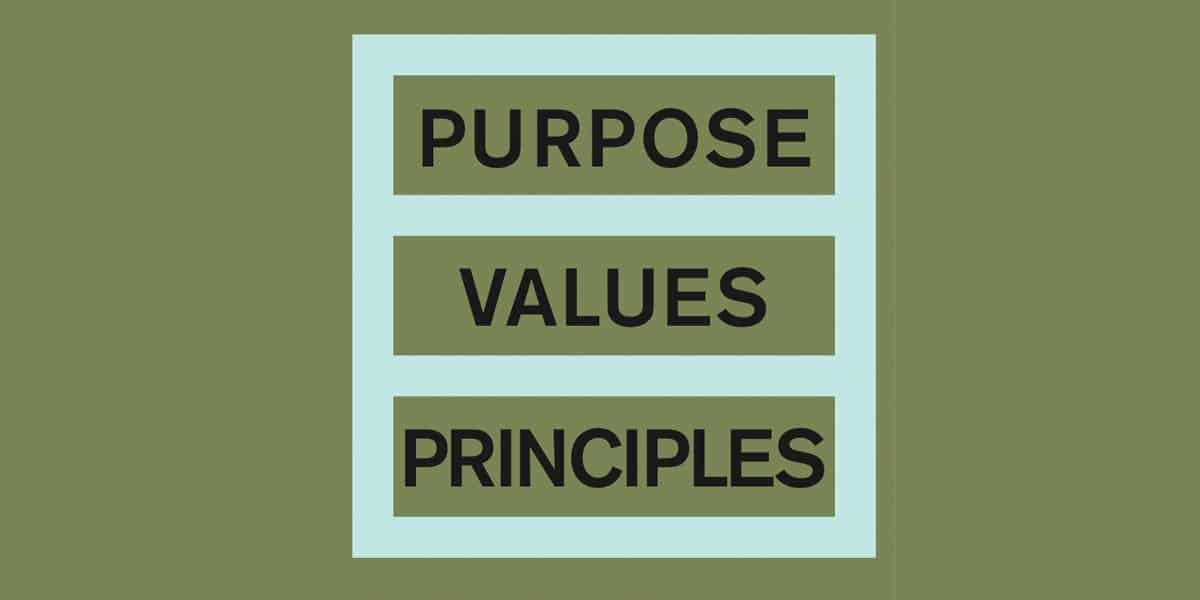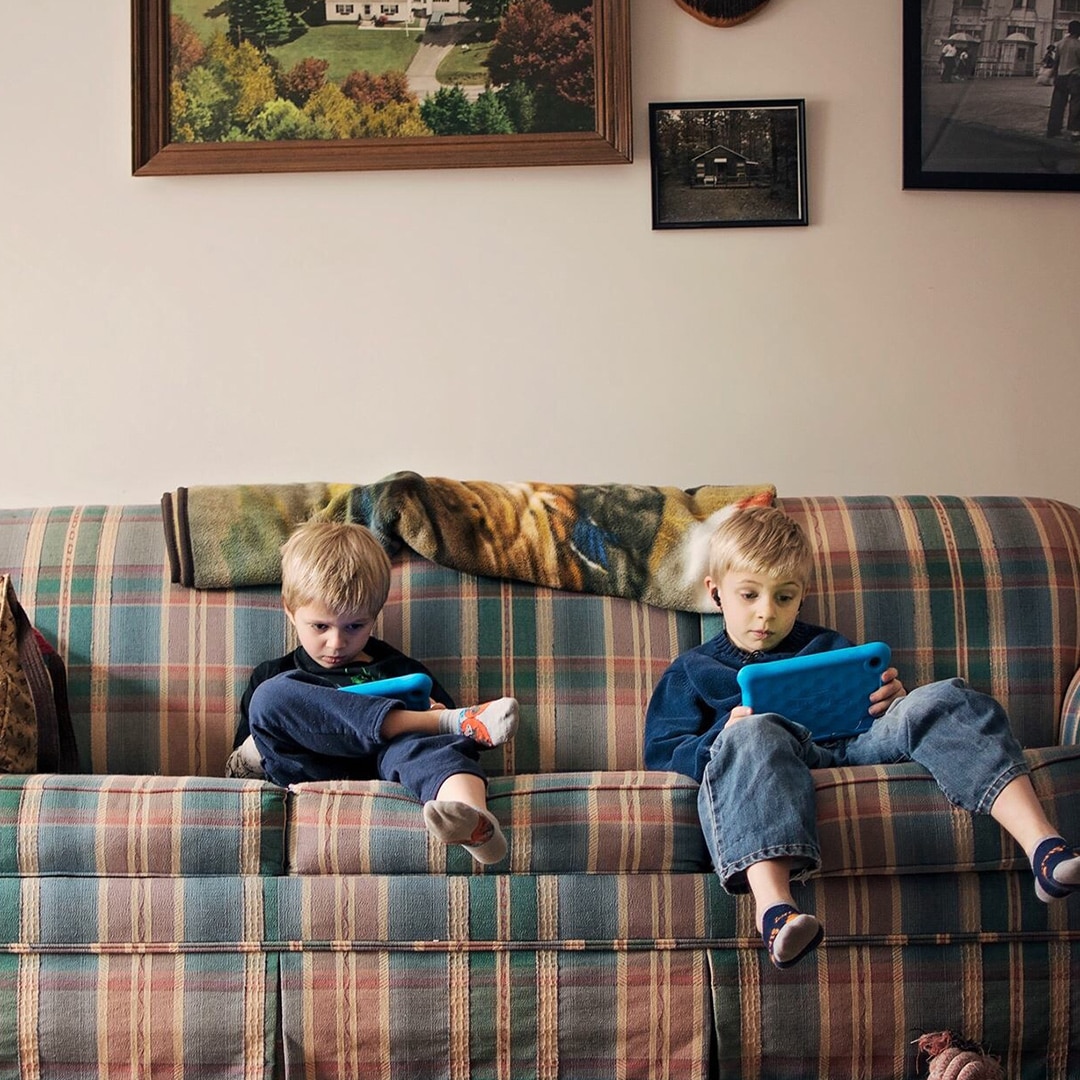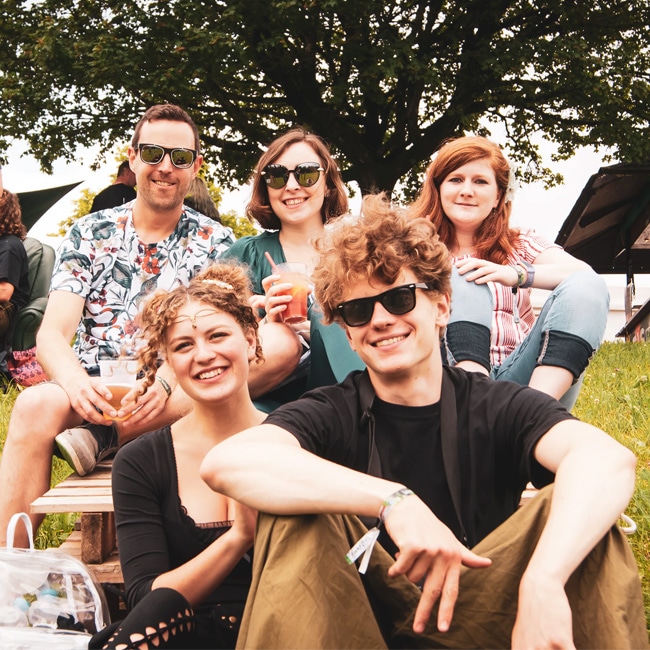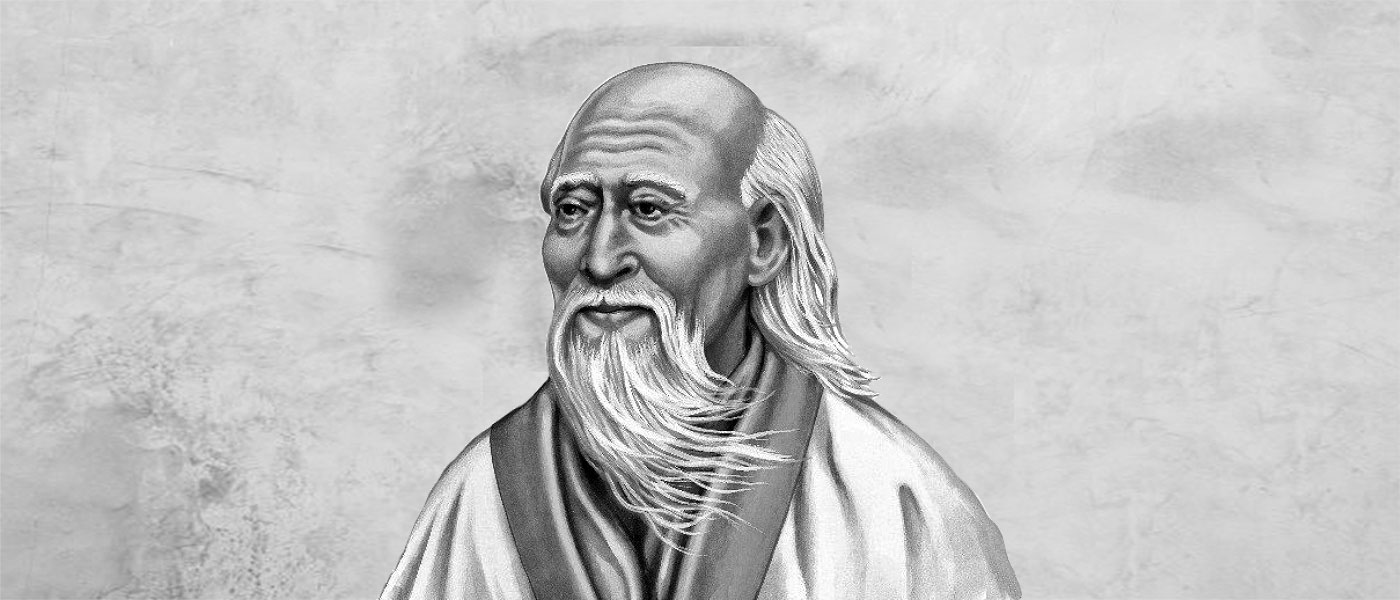Education is more than an employment outcome

Education is more than an employment outcome
Opinion + AnalysisPolitics + Human RightsSociety + Culture
BY Simon Longstaff 26 JUN 2020
The Federal Government recently announced university funding restructures that made a clear statement – to prioritise ‘useful’ degrees.
This decision is significant for a number of reasons. First, it has further shifted the cost of a university education away from government and onto students. It has done so on the assumption that education benefits the individual more than the society to which they contribute.
Second, the government has nominated some courses of study as being more likely to lead to employment than will others. Somewhat paradoxically, the government is reducing the cost of study for those most likely to get jobs, while increasing it for those it thinks will struggle to find employment due to their ill-considered choice of subjects. ‘Cost’ is deliberately unrelated to ‘ability to pay’ – and requires those with apparently poor employment prospects to subsidise the education of their more fortunate peers.
It’s clear that the government hopes market forces will encourage more people to take on ‘useful’ courses of study. However, in a further ironic twist, the new policy relies on the fact that many people will not. Otherwise, the economics won’t work. Fortunately (for the policy) there will be limited places available for the study of ‘useful’ courses in nursing, teaching and agriculture. This means that some of the students who rationally seek a ‘good deal’ will be forced to accept their ‘second choice’ – even to the point of having to suffer through a relatively expensive ‘dead-end’ degree in the Humanities.
However, this piece is not meant to be an examination of the paradoxes of government policy. Rather, I want to look at a deeper issue – the underlying assumption that resources are best invested in ‘useful’ things.
Demonstrating ‘usefulness’
This thinking stalks my waking hours – as it probably does anyone running an organisation that is not immediately and demonstratively ‘useful’. For those of us working in the not for profit world, the word ‘useful’ is never used. In its place is the notion of ‘impact’. Conventional wisdom dictates that one must demonstrate impact – or die!
The thinking that drives a demand to measure, report on and invest in ‘impact’ is the same thinking that leads a government to focus its investment in higher education on supporting courses that lead to the ‘jobs of the future’. With limited taxpayer and philanthropic dollars to spend, why not invest in those things that can prove themselves most effective? It’s easy to argue that this is the rational thing to do… but is it?
What is the ‘impact’ of Bell Shakespeare staging King Lear? What is the ‘impact’ of the National Gallery of Australia hanging Blue Poles? What is the impact of the Festival of Dangerous Ideas? I think it impossible to trace the impact of any of these works. We can measure outputs – the number of attendances, mentions in the media, donations received, and so on. But these numbers don’t identify the ideas or experiences seeded in the theatre, a gallery or at a festival that germinate – perhaps years later – and change the world.
Ideas can change the world
We underestimate the value of things like philosophy when assessed over the long term. Nearly every branch of knowledge that we draw on today including science, mathematics, economics, medicine and psychology were thought into existence by philosophers.
People motivated by nothing more than a love of wisdom (philo-sophia) have changed the world. The original concept of the atom came from Democritus. Pythagoras brought us the role of constants in mathematics. The classification of species began from Aristotle. Thomas Hobbes ideated the modern nation state. Adam Smith brought us the free market and Peter Singer animal rights. With the benefit of hindsight, their impact is obvious. But few of the world’s great philosophers could have demonstrated ‘impact’ while working on their seminal ideas.
I understand the strong desire to measure impact, to invest in making a tangible difference. I understand why governments want to fund ‘practical outcomes’ such as helping people to secure future employment. However, there is something deeply irrational about turning one’s back on forms of education and endeavour that emphatically shape the world – but at a pace and by means we cannot easily measure.
If ‘impact’ is the only measure of something’s worth, then we might as well close down the arts, the humanities, and a whole lot more. However, this would be to deny a fundamental truth that has informed all great societies: some things matter not because of their impact – but in and of themselves.
Ethics in your inbox.
Get the latest inspiration, intelligence, events & more.
By signing up you agree to our privacy policy
You might be interested in…
Opinion + Analysis
Climate + Environment, Politics + Human Rights
Who is to blame? Moral responsibility and the case for reparations
Opinion + Analysis
Relationships, Society + Culture
A parade of vices: Which Succession horror story are you?
Opinion + Analysis
Society + Culture
Ethics on your bookshelf
Opinion + Analysis
Relationships, Politics + Human Rights
How to have a difficult conversation about war
BY Simon Longstaff
Simon Longstaff began his working life on Groote Eylandt in the Northern Territory of Australia. He is proud of his kinship ties to the Anindilyakwa people. After a period studying law in Sydney and teaching in Tasmania, he pursued postgraduate studies as a Member of Magdalene College, Cambridge. In 1991, Simon commenced his work as the first Executive Director of The Ethics Centre. In 2013, he was made an officer of the Order of Australia (AO) for “distinguished service to the community through the promotion of ethical standards in governance and business, to improving corporate responsibility, and to philosophy.” Simon is an Adjunct Professor of the Australian Graduate School of Management at UNSW, a Fellow of CPA Australia, the Royal Society of NSW and the Australian Risk Policy Institute.
Moving on from the pandemic means letting go

Moving on from the pandemic means letting go
Opinion + AnalysisBusiness + LeadershipHealth + WellbeingRelationships
BY Cris Parker The Ethics Centre 4 MAY 2020
Emerging from the turbulence of COVID-19, we have the opportunity to escape the hold of our past and use moral imagination to explore a better future.
After months of living through disruption, old work habits and perceptions may no longer fit the ‘new normal’, says Michael Baur, Associate Professor in the Philosophy Department at Fordham University and an Adjunct Professor at Fordham Law School.
“There’s a very positive side to this, because it makes us realise that the seemingly obvious, natural way of operating is not so obvious anymore.” says Baur.
“It does afford us the ability to think a little bit more carefully about what we’re doing.”
A simple example may be that, after mastering virtual meetings, we realise that the regular face-to-face interstate meetings we thought to be essential are not, in fact, a necessary part of doing business. Instead of asking ‘can we do this online?’ we might now ask, ‘should we do this online, is there a good reason to do it in person?’
“It’s liberating, potentially, to be able to be thrown back and see that the seemingly natural is really not so natural and obvious after all,” says Baur.
Aspects of life previously unquestioned, such as our choices of where to live, send our kids to school or even the jobs we do, may be cast in a different light.
Speaking with Bob McCarthy, an Irish colleague, he spoke of the experience of the ‘Celtic Tigers’ during ten-year-plus period of economic growth prior to 2008. “Ireland had never experienced anything like it and our economy became the envy of the world. Of course, we lived in accordance with our new wealth and fame – two houses each, BMWs, ski holidays and buying chalets in Morzine”, says McCarthy.
Many rationalised their good fortune – ‘we’ve had it tough for so long we deserve a little luxury.’ So, when the Global Financial Crisis (GFC) crash came, it came hard. There was a 60% average fall in property prices, high unemployment, many family tragedies, house repossessions and years of debt to repay.
Bob said that the experience of crisis changed attitudes and behaviours, “Now, those of us who have been through this look at life, business, money, relationships, values, ethics through a different filter than before”.
He describes the experience of having benefitted from the pain. What had once seemed important during the times of excess are no longer important. What didn’t matter then, matters to him now. “Don’t get me wrong – not everything has changed. But for most the filter we use has changed”.
Baur says that, with the experience of COVID-19, we now have a similar opportunity to reset our aspirations, “When we were riding easy, just several weeks ago, we were in a state of deception.” He recognises that the pandemic has caused major economic shocks – perhaps even more severe than those caused by the GFC, “And now we can regroup. That seems to me a more positive, healthy way of thinking of it – that all of this wealth and expectation was not really ours to have to begin with.”
Bigger is not always better
The aftermath of the pandemic presents a good time to reassess our attitude to growth. The fact that almost all sectors of business have suffered means that there is a collective opportunity to slow down and reassess whether the purpose of business is to make more money for money’s sake, or to provide for human need.
Business is now attending to issues that were always there to be addressed – but remained largely ‘unseen’. By presenting itself as a ‘common enemy’, COVID-19 has caused us all to look up at the same time and respond to a suite of collective problems.
In many cases, our response has been an expression of human goodness, compassion and altruism. ‘Them’ has become ‘us’.
For example, Accor hotels, is opening up unused accommodation to support vulnerable people. Simon McGrath, Accor’s CEO, says, “Our doors are open,” said Accor’s McGrath “We have accommodation assets that can help people in times of need, and while the industry’s been devastated commercially, it doesn’t mean we can’t help.”
In a similar vein, UBER has partnered with the Women’s Services Network to provide 3,000 free rides to support those needing safe travel to or from shelters and domestic violence support services.
Australia was relatively unscathed by the GFC of 2008 and did not experience the large economic downturn felt elsewhere on the globe. Australia has also managed to flatten the curve and “none have been more successful than Australia and New Zealand at containing the coronavirus,” said Jonathan Rothwell, Gallup’s principal economist.
This is thanks to our strong public health system and our comprehensive testing regime, to the tracing of carriers and our strict self-isolation and physical distancing laws. We were also lucky that our geographic isolation bought us an extra 10 precious days to prepare.
However, Australia has not and will not escape the economic consequences of the pandemic – and our response to the threat it poses. So, how will we shape up when the challenge is an economic recession as opposed to a medical emergency? Will the good will and sense of common endeavour persist during the next phase of struggle? More interestingly still, will the sense of mutual obligation survive a return to posterity? Or will we resume our ‘old ways’?
Baur says an argument could be made that business and society in general did not make the most of the lessons to be learned from the GFC, more than a decade ago. Ireland’s Bob McCarthy, is of the same opinion, “We may be having an opportunity that would have been a lost opportunity from that time,” he says.
“What might be seen as a loss of opportunity, a loss of growth, in one limited respect, is really a darn good thing for everybody,” Baur says.
Echoing the same sentiment, Mike Bennetts CEO of Z Energy in New Zealand told audiences at the Trans – Tasman Business Circle that this virus has accelerated us into the future by 5 years, so “let’s make the most of it”. Our instinct is to seek comfort and confidence in the known which will mean going back to the way it was.
The challenge, now, is not only to create a new future but a better future. For that to happen we need to unleash a better version of ourselves.
You can contact The Ethics Centre about any of the issues discussed in this article. We offer free counselling for individuals via Ethi-call; professional fee-for-service consulting, leadership and development services; and as a non-profit charity we rely heavily on donations to continue our work, which can be made via our website. Thank you.
Ethics in your inbox.
Get the latest inspiration, intelligence, events & more.
By signing up you agree to our privacy policy
You might be interested in…
Explainer
Relationships
Ethics Explainer: The Sunlight Test
Opinion + Analysis
Business + Leadership, Relationships
Treating citizens as customers is a recipe for distrust
Opinion + Analysis
Business + Leadership
Banks now have an incentive to change
Opinion + Analysis
Health + Wellbeing, Society + Culture
Why I had a vasectomy at 30
BY Cris Parker
Cris Parker is the former Head of The Ethics Alliance and a Director of the Banking and Finance Oath at The Ethics Centre.
BY The Ethics Centre
The Ethics Centre is a not-for-profit organisation developing innovative programs, services and experiences, designed to bring ethics to the centre of professional and personal life.
Moral fatigue and decision-making

Moral fatigue and decision-making
Opinion + AnalysisHealth + WellbeingRelationships
BY Cris Parker The Ethics Centre 24 APR 2020
A senior executive starts making out-of-character decisions that reflect his personal fears. Teams are frozen in indecision as the ground continually shifts beneath them. Days become punctuated with emotional meltdowns from people you have always relied upon in a crisis.
At home, you might be disagreeing with loved ones about the right response to COVID -19. Is the situation as serious as officials claim? Or are people exaggerating the risks? What is the right amount of physical distancing? Why should the whole of a society bear the costs for the sake of the few? Is this even a fair way to frame the questions?
These are some of the signs that the prolonged impact of COVID-19 is causing moral fatigue in the people around you.
Moral fatigue can occur when the “right thing to do” is unclear. Who should bear the cost of protecting a business? What if personally caring for elderly parents risks exposing them to deadly infection? It can be exhausting to make decisions in this kind of ambiguity, day after day.
Michael Baur, Associate Professor in the Philosophy Department at Fordham University and an Adjunct Professor at Fordham Law School, says moral fatigue comes from situations where attempts to do good also result in “destroying a good”.
“People have often referred to the idea of moral fatigue as compassion fatigue or moral distress,” he told me on a zoom call from the US. “What we have in the current context is a situation that makes it increasingly difficult to understand if I’m doing the right thing. It’s no longer possible to assume that the good that I’m doing is unambiguously good,” he says.
It could be dangerous to keep running a business, for instance, if it means employees are in danger. “There’s a real conflict there. And there are no rules.”
Why people panic
Usually, as people go about their normal lives many actions are performed on “autopilot”. Typing on a keyboard, for instance, is done out of habit; the decision of which keys to hit doesn’t exercise mental exertion; one’s finger ‘do the work’. Baur says a crisis such as COVID-19 “jumbles” the keys on the keyboard. It changes the rules and worse still, you don’t know what those new rules are as they can change, minute-by-minute.
“It’s really disorienting,” says Baur. “People go back to what they know is safe, and they become more infantile, more self-protective and defensive.”
This is the kind of response that decreases our capacity to make good decisions. It leads to the hoarding behaviours we have seen in supermarkets, anxiety about money and a focus on individual survival.
Slow down and be more forgiving
Thinking about ‘just getting beyond this’ assumes a future state where the problem no longer exists and everything is the same as before. It’s too simplistic to suggest we will all be ok – many of us won’t be, unless we adapt.
A common result of moral fatigue can be impatience. When we try to think through frameworks that no longer serve us well we can become increasingly impatient, the more we do so, the more mistakes we make – leading to even more frustration.
Baur likens our situation to building the raft at the same time that you are using it to survive. He says, it’s okay to make mistakes because we’re all trying to refashion this raft, even as we’re stepping on top of each other trying to stay afloat. Mistakes will be made.
“You’re not alone. Everybody feels the same way. We have to be more forgiving of others and I think individuals have to be more forgiving of themselves in the sense that it’s okay to be freaked out. Everybody is.”
You can contact The Ethics Centre about any of the issues discussed in this article. We offer free counselling for individuals via Ethi-call; professional fee-for-service consulting, leadership and development services; and as a non-profit charity we rely heavily on donations to continue our work, which can be made via our website. Thank you.
Ethics in your inbox.
Get the latest inspiration, intelligence, events & more.
By signing up you agree to our privacy policy
You might be interested in…
Opinion + Analysis
Relationships
Now is the time to talk about the Voice
Opinion + Analysis
Relationships
5 stars: The age of surveillance and scrutiny
Opinion + Analysis
Relationships, Science + Technology
Making friends with machines
Opinion + Analysis
Relationships
Anti-natalism: The case for not existing
BY Cris Parker
Cris Parker is the former Head of The Ethics Alliance and a Director of the Banking and Finance Oath at The Ethics Centre.
BY The Ethics Centre
The Ethics Centre is a not-for-profit organisation developing innovative programs, services and experiences, designed to bring ethics to the centre of professional and personal life.
Seven COVID-friendly activities to slow the stress response

Seven COVID-friendly activities to slow the stress response
Opinion + AnalysisHealth + WellbeingRelationships
BY Karina Morgan 16 APR 2020
The coronavirus pandemic has affected nearly everything we do in our everyday lives. The things that give us joy and meaning – going to the gym, the beach, meeting friends for coffee – are no longer possible.
This is having a real impact on our mental health and capacity for good decision making. Beyond Blue have reported a four-fold increase in the number of calls and enquiries related to COVID-19 since March, a level far exceeding the period during the summer fires.
Our brains are wired to seek certainty and our neural circuits register unexpected events as threats. This triggers a fear response, known commonly as ‘fight or flight’, which causes a cascading chemical reaction in our bodies. That response prevents or impairs access to the higher levels of the brain where we deal with complex decisions.
So, it’s fair to say that uncertainty and fear reduce our capacity for quality decision making. This is, in part, because the area of impeded access involves the pre-frontal cortex, the part of our brain that actively processes information, accesses creative thinking and enables good decision making.
At its very core, ethics is about making good decisions. It asks us to consider all the ways we might act and to choose for the best. To take responsibility for our beliefs and our actions, and live a life that is entirely our own.
We know that many of you are facing challenging choices in circumstances that involve an unprecedented level of change and uncertainty in our individual and collective lives.
People are moving to work from home with kids in the house, facing job losses, closing businesses and deciding how to care for vulnerable loved ones. Many people are also experiencing the impacts of hyper-connection and feeling overwhelmed by the constant stream of new information.
With the sense of control and certainty taken from us, it’s easy for our decisions to be overcome by what we fear. With that in mind, it’s important to make time to find new activities that will help to activate the feel-good chemicals in our brains.
These seven activities can be practised while experiencing physical distancing. They are proven to slow down the stress response and boost your mood.
-
Take a nature break
2,500 years ago, Hippocrates, the Ancient Greek Physician and so-called ‘father of medicine’, said “walking is man’s best medicine”. Having invented the Hippocratic oath, he certainly wouldn’t lie! The moment you step outside the concrete jungle and into nature, your body shows its gratitude by releasing serotonin, a mood-regulating neurotransmitter. We are encouraged to stay at home. But if you have a backyard or nature reserve nearby, take regular breaks from the computer for fresh air or to use these spaces for exercise. Just be mindful to ensure you’re following recommendations and maintaining safe physical distancing in the process.
-
Move your body
Physical exercise acts like a power booster, it increases endorphins, the ‘peptide good guys’ that reduce pain perception and trigger positivity. Literally, happy days. Running and walking are great ways to shift pent-up energy. If you’re in self-isolation, try skip rope, something you could make, at a stretch, with a plastic cord or clothes line. A 32 year old French man ran the entire length of a marathon on his balcony during lockdown! Give yourself a tech-tox and move your body, ideally in nature, even if it’s just for ten minutes.
-
Take a bath
Many people experience a sense of calm around water and it’s no surprise if you consider the fact that our bodies are 60% water, and our brains more than 70%. Both Ayurveda and traditional Chinese medicine believe that the water element is crucial to rebalancing the body. With many beaches closed, look to what you can do within your own home. Fill up the bathtub and immerse your body in water. To super charge the experience you might even soften the lighting or drop in some essential oils to stimulate your senses.
-
Have a laugh
Laughter triggers the release of dopamine into the brain’s reward centre, giving you a high that lowers stress levels and increases your receptivity to pleasure. What may come as a surprise is that research also suggests that simply anticipating a laugh can have a similarly powerful effect. The expectation of something funny turns on our parasympathetic response system. So, it seems there’s never been a better time to practise your best ‘dad jokes’ on friends or the kids. There’s plenty of funny fodder available on streaming services. Check out Vulture’s list of the 50 best comedies on Netflix.
-
Practice yoga
The benefits of this ancient practise go far beyond the physical. In a yoga class, the combination of breath awareness and asana (postures) act to still the fluctuations of the mind and deepen your mind-body connection. Studies have shown that just a single one-hour yoga class can have a positive biochemical impact on your brain. Regular practise can reduce stress, anxiety, post traumatic stress disorder and depression. With traditional classes currently cancelled, many yoga teachers and studios are live streaming offerings, by donation or free of charge, for you to practise from home.
6. Listen to some tunes
Music makes your brain sing. You know that happy rush you get when your favourite song comes on the radio? It’s a chemical romance, one that lets off steam, injects the good vibes and let’s be real, is just a whole lot of fun. When music triggers your pleasure receptors dopamine is released into the striatum, the same part of the brain that responds to sex, chocolate, and is stimulated by artificial narcotics like cocaine. Research has also found that that some music has meditative qualities and can positively impact stress reduction and overall happiness. Fun fact: neuroscientists have found that listening to this song can reduce anxiety by up to 65%.
-
Dance it out
Dancing, like any other physical activity, releases neurotransmitters and endorphins to alleviate stress. Combining the dopamine response stimulated by music with these endorphins has the potential to supercharge your positivity. Plus, it’s almost certain that you’ll laugh along the way. Right now, you really can dance around the house like no one is watching. Prefer company? Have a virtual dance party. Many companies are rolling out video call dance breaks to manage the impacts of social isolation on extroverts in the workforce. Whether you want to do it with work, or friends, it’s easy to set up a time, pick a song, and all jump on a video call to dance it out together.
You can contact The Ethics Centre about any of the issues discussed in this article. We offer free counselling for individuals via Ethi-call; professional fee-for-service consulting, leadership and development services; and as a non-profit charity we rely heavily on donations to continue our work, which can be made via our website. Thank you.
Ethics in your inbox.
Get the latest inspiration, intelligence, events & more.
By signing up you agree to our privacy policy
You might be interested in…
Opinion + Analysis
Relationships, Society + Culture
But how do you know? Hijack and the ethics of risk
Opinion + Analysis
Health + Wellbeing, Science + Technology
Twitter made me do it!
Opinion + Analysis
Politics + Human Rights, Relationships
Is it wrong to care about Ukraine more than other wars?
Opinion + Analysis
Relationships
Struggling with an ethical decision? Here are a few tips
BY Karina Morgan
Karina is a communications specialist, avid hiker and volunteer primary ethics teacher, with a penchant for the written word.
Moving work online

Moving work online
Opinion + AnalysisBusiness + LeadershipRelationships
BY Talya Wiseman The Ethics Centre 10 APR 2020
As the COVID-19 dominos continue to fall, many organisations are scrambling to rethink the way they work. These changes are happening in real time; on a scale both unprecedented and unpredicted.
The last pandemic of this nature, the Spanish Flu, occurred 100 years ago – well before anyone had dreamed up the internet, computers and video conferencing. In 2020, advances in technology, such as international flights, have allowed this virus to spread at a much faster rate. However, they have also afforded many organisations the opportunity to pivot their operations online.
Schools and universities have, for the most part, managed this at an incredibly fast pace. With barely any notice, teachers have become adept at using online delivery platforms and are coming up with new ways to engage their students online.
Students are able to continue their same classes via platforms like Zoom or Microsoft Teams; all the while knowing that the rest of their class is right there, learning alongside them.
Now that all but essential workers are urged to stay at home, ideas about working environments have also been forced to alter at an unusually rapid pace. For example, workplaces and teams have begun to adapt to meeting online. A popular meme doing the rounds at the moment depicts a scenario 40 years from now when a grandchild asks their grandparent with wonder “Go to work? You used to actually GO to work?”
It is incredible to see how many fundamental changes and shifts in thinking have occurred in such a short space of time. We simply had neither the time nor the opportunity to incorporate long policy discussions, carefully timed rollout plans or trial periods. Many organisations that previously assumed they needed a common workplace are now questioning the validity of this assumption.
What happens next?
The big question is this: when all of this is over and we return to normal, what will normal look like? Will organisations revert to their old ways? Or will we have seen the value in new patterns of working? Our eyes have been opened through this experience. Our assumptions about the nature of work have been challenged. Having reorientated towards online workplaces, will it be so easy to pivot back? And will we want to?
There are certainly benefits to workplaces accepting remote working as a viable option. Parents and carers, who previously struggled to convince their employers that they could effectively work from home, will likely find this argument much easier to make. If people have been able to fulfill their work duties in these most trying times, clearly it will be easier for them to continue to do so when it is an option they are choosing.
The stigma of working from home has rapidly been removed. It should no longer be seen as the ‘lesser’ option compared to attending an office. Organisations are finding innovative ways to ensure staff feel supported while working from home; while also maintaining expectations of staff – wherever they happen to be located.
The role of the physical workplace
However, there is a risk in realising just how easy it is to do things online. The role that work plays for individuals is much more than just providing an income. Work is also about fulfilment; it is about social interaction. The best initiatives can arise from bouncing ideas around with colleagues. Families can laugh together at the dinner table when sharing work stories and funny moments that occurred at the office. Colleagues can celebrate each other’s success and commiserate together when things don’t go as planned. Work is about so much more than ‘work.’
One of our principles, here at The Ethics Centre, is to “know your world and know yourself”. We believe in the importance of questioning who we are and being conscious of what we do. If the nature of work is fundamentally to change, we must recognise what we are giving up, as well as the opportunities that may arise. Just because we were rushed into this new reality doesn’t mean we can’t carefully consider the best way to move on from it.
Let’s not just fall back into old patterns. Let’s use this as an opportunity for questioning and for finding a better ‘normal’. That might well be a workplace that embraces flexible arrangements and is open to non-traditional office environments, while at the same time never losing touch with deeply human moments and interactions.
Perhaps we will realise that work, regardless of industry, is about purpose, fulfilment and human interaction.
You can contact The Ethics Centre about any of the issues discussed in this article. We offer free counselling for individuals via Ethi-call; professional fee-for-service consulting, leadership and development services; and as a non-profit charity we rely heavily on donations to continue our work, which can be made via our website. Thank you.
Ethics in your inbox.
Get the latest inspiration, intelligence, events & more.
By signing up you agree to our privacy policy
You might be interested in…
Explainer
Relationships
Ethics Explainer: Epistemology
Opinion + Analysis
Politics + Human Rights, Relationships
When human rights complicate religious freedom and secular law
Opinion + Analysis
Health + Wellbeing, Relationships
Male suicide is a global health issue in need of understanding
Opinion + Analysis
Relationships
Do we have to choose between being a good parent and good at our job?
BY Talya Wiseman
is an experienced educator who has worked extensively in both the formal and experiential education space. At The Ethics Centre, Talya is the Educational Program Manager creating innovative, engaging and quality ethics-focused education
BY The Ethics Centre
The Ethics Centre is a not-for-profit organisation developing innovative programs, services and experiences, designed to bring ethics to the centre of professional and personal life.
Why ethical leadership needs to be practiced before a crisis

Why ethical leadership needs to be practiced before a crisis
Opinion + AnalysisBusiness + LeadershipHealth + Wellbeing
BY Dennis Gentilin 9 APR 2020
Crises, especially as momentous as this one, have a habit of exposing leaders. At worst, they expose incompetence and self-interest. At best, they reveal courage, resilience and deep concern for others. It is the latter that is the hallmark of ethical leadership.
Make no mistake, these are challenging times. There are potentially some dark days ahead. Humanity has not faced a perilous situation of this magnitude in my lifetime.
Unfortunately, ethical leadership is not something that can be ‘switched’ on at will. In trying times, one cannot simply dust off the ethical leadership manual and, like a chameleon, transform one’s approach. The reason for this is that ethical leadership is honed through many years of practice.
Ethics is a long game
This is not a new idea. Aristotle described ethical virtue as a “hexis” – a state or disposition – that is shaped by our habits. We come to be ethical by acting ethically, consistently being guided by an ethical framework when making choices, regardless of how difficult this might be given the prevailing circumstances. This is what it means to be a person with integrity.
For this reason the COVID-19 pandemic will (and in some cases already has) reveal what leaders believe to be good (their values) and right (their principles). More importantly, it will reveal how committed they are to their ethical core. Those who have failed to make ethical practice a daily habit will find it difficult. They may already have stumbled or are perhaps struggling to win the trust of sceptical followers. For those who have made integrity central to their leadership, the turbulent waters will be somewhat easier to navigate. Making the ethical choice will come more instinctively.
There is also the possibility that ethical leadership will emerge in the current crisis from the most unlikely of places. People whom we may have thought were not cut out to deal with a crisis or a thrust into a position of leadership will rise to the occasion. Perversely, moments like these, instead of paralysing leaders, can provide greater clarity on what is the ‘right’ thing to do. The path one must take, although rocky, lights up and is clearly signed. A leader comes into their own.
Ethical leadership, not perfection
All this being said, one thing that we should not (and cannot) expect is ethical perfection. In situations like these where there are excruciating trade-offs associated with many decisions, ethical perfection cannot be defined. The available choices are evenly balanced, providing a myriad of possible outcomes that all have considerable merit. It would therefore be preposterous to think that any leader in these circumstances, no matter how ethical, will get everything ‘right’. We should respect those who are being called upon to make extraordinarily difficult decisions, with imperfect information, in a highly dynamic environment.
However, there are some minimal expectations we should expect from our leaders. We should expect a degree of candour and honesty, accepting that in some cases full transparency will do more harm than good. We should expect that the safety of people – particularly the most vulnerable – is prioritised, accepting that there will be unfortunate loss of life. Above all, we should expect leaders to act with sincerity, rely on the best available evidence and display ethical competence. ‘Winging it’, ‘intuition’ and ‘common sense’ are not enough.
We all have a role to play
We should also understand that ethical leadership is not reserved for those who sit highest in the hierarchy, especially in unprecedented moments like these. This is something that can’t be underestimated. Ethical leadership will need to emerge at every level of society if we are to find a way through what will be some very difficult weeks and months ahead. Do not discount our essential role as ethical citizens.
Jon Haidt, a professor of ethical leadership at the Stern School of Business at NYU, talks about how morality “blinds and binds”. It can evoke the passions and bind people around a common cause. However, in doing so, it can breed dogmatism and drive us into our ideological camps, blinding us to our common humanity.
For the first time in a while, the coronavirus has created a present and common cause that all of humanity can bind to. It will test our leaders and in doing so reveal those who make ethics more than a word in their by-line. It will produce benevolent and heroic acts among citizens that extreme circumstances like these so often educe. And hopefully, by producing a cause we can all be bound by, it will dampen some of the tribalism and self-interest that has been an unfortunate feature of some sectors of our society in recent times.
You can contact The Ethics Centre about any of the issues discussed in this article. We offer free counselling for individuals via Ethi-call; professional fee-for-service consulting, leadership and development services; and as a non-profit charity we rely heavily on donations to continue our work, which can be made via our website. Thank you.
Ethics in your inbox.
Get the latest inspiration, intelligence, events & more.
By signing up you agree to our privacy policy
You might be interested in…
Opinion + Analysis
Business + Leadership
Shadow values: What really lies beneath?
Opinion + Analysis
Health + Wellbeing
The virtues of Christmas
Opinion + Analysis
Business + Leadership, Politics + Human Rights
A foot in the door: The ethics of internships
Opinion + Analysis
Health + Wellbeing, Society + Culture
Does ethical porn exist?
BY Dennis Gentilin
Dennis Gentilin is an Adjunct Fellow at Macquarie University and currently works in Deloitte’s Risk Advisory practice.
Navigating a workforce through stressful times

Navigating a workforce through stressful times
Opinion + AnalysisBusiness + LeadershipHealth + Wellbeing
BY Michelle Bloom The Ethics Centre 6 APR 2020
COVID-19 has created a cascade of unprecedented changes to how we work, live and interact.
With many organisations moving online, managing restructures, significant job loss and transformation of existing roles and responsibilities, leaders need to be consciously aware of the impact of stress on individual and team performance.
Certain aspects of organisational behaviour can trigger threat reactions in people that impede their effectiveness and limit their ability to contribute to the success of the team. Research in neuroscience can inform our response to such situations, as the neural functioning of individuals within the workplace underlies the social nature of high performance.
What happens to us in stressful environments
The brain is a social organ. Studies by UCLA have found that when we feel excluded from play or rewards, our brains trigger a response from the same neural regions associated with the distress that comes with physical pain. This neurophysiological link has been explained as evolutionary, a developmental hangover from the dependency of infancy. As UCLA neuroscientist Matthew Liebermann puts it, “To a mammal, being socially connected to caregivers is necessary for survival”.
This neurological response has a number of implications for business and leaders navigating this current crisis – especially in regards to remote working and communicating organisational changes driven by COVID-19.
A person who feels their position and work to be valued, by their leaders, solely as an economic and rational transaction (labour for money) will likely feel betrayed, unrecognised and disengaged.
Research shows that each time a person feels like this, it is physiologically and psychologically analogous to a ‘blow to the head’ and is processed in the brain in the same way as physical pain. Naturally, our conscious selves rationalise the discomfort, but if this situation is chronic and ongoing, it is more likely that employees will begin to desensitise in self-protection. They will effectively push the discomfort away, so as to not feel it consciously. This shutting down of large parts of our response pathways disables us, making high-performance impossible.
Many studies, including Paul MacLean’s infamous “Triune Brain” theory, look at how fear responses negatively impact the quality of mental functioning. In more mild circumstances, the emotional centres associated with the limbic brain will interfere with the circuitry of the logical neo-cortex. In extreme circumstances, our ‘fight, flight, freeze’ response gets triggered, creating a chemical reaction that entirely hijacks the brain’s emotional centre, the amygdala, making logical thinking impossible.
However you conceptualise it, high emotion is disastrous for the adaptive thinking required for complex problems – so critical for ethical decision making.
Physiologically, the threat response ties up glucose and oxygen, as lower areas of the brain, more intimately concerned with survival, take precedence over higher centres. In threat situations, these resources are withheld from working memory, impairing the processing of new information or ideas, and slowing analytic thinking, creativity and problem solving.
Addressing the needs of the individual and the organisation
We’ve all heard that adults are poor learners, fundamentally intractable, or that their natural response to change is resistance. While elements of these statements are true, what is also true is that the adult brain continues to be highly plastic; albeit not as much as children or infants. That means that not only can behaviours change, but that the neural networks that underlie all thought and behaviour are in fact changing every day.
To increase the chances of your business being high-performing, David Rock’s SCARF Model, as outlined in his paper “SCARF: A Brain-Based Model for Collaborating with and Influencing Others,” suggests that leaders should look at how the organisation deals with the following aspects of individual functioning in the collective social system.
1. Certainty
Our brains are wired to crave certainty. This desire is underpinned by neural circuits that register unexpected events as gaps or errors. Because an assumed pattern is no longer functioning as it should, it is registered as a threat.
Think about how you respond when the car in front slams on the brakes. Normally, we can do multiple things at the same time when we drive – hold a conversation, listen to music, monitor what’s going on around us, think about the shopping list – but faced with a potential accident, your working memory is diminished. All other activities and thoughts must cease as you shift full attention to the potential threat ahead.
Some uncertainty can be intriguing and enjoyable; too much leads to panic and bad decisions. For many people right now, the levels of uncertainty – combined with imminent health and employment risks – will be triggering this aspect of the ‘fight or flight’ response. This impedes their capacity to access creative thinking and good decision making.
Of course, certainty is an illusion. However, people need a semblance of certainty in order to perform. Leaders need to build confidence in their people so they, in turn, can trust in individual and collective capability to work through whatever comes. Keeping a clear and regular stream of communication around how decisions are being made increases trust and promotes engagement. Chunking larger problems into shorter time frames also helps people feel more certain.
2. Status
As humans, our relative status within social systems matters. This is the basis for all competition, social hierarchy, and, conversely, much social unrest. Many organisations have processes and practices that threaten people’s status. Hierarchy reinforces a notion of ‘greater than’ and ‘less than’, while performance appraisals and coaching generally place one person in the position of being more knowledgeable, capable and powerful than the other. Unless these interactions are carefully considered and thoughtfully executed, they will feel threatening to an individual’s status.
Actions that enhance status include private, as well as public, recognition. In addition, the quality of interactions from leaders with their people can raise the self-status of those who sit lower in the hierarchy. Therefore, one of the most important (albeit intangible) skills of a leadership team is their capacity to interact with others in a respectful and status-enhancing way.
With staff working digitally, and from home, leaders need to innovate and find new ways to show this recognition. This will make people feel seen and valued for the work they do.
3. Autonomy
When people feel they can execute their own decisions, without interference, their felt stress is lower. In a 1977 study, residents of aged care facilities who had more agency and decision making rights, lived longer and healthier lives. While what they were deciding about was insignificant; their autonomy was critical. In another study, franchise owners principally left corporations citing work-life balance. Once in their own business, they generally worked longer hours, for less money, and nevertheless reported better work-life balance, because they were making their own decisions.
Delegation systems, hierarchy, confusing reporting lines, moribund policy and procedure, and parochial mindsets can all contribute to less agency for individuals in businesses. Often people are not aware that they are not delegating, that they are effectively withholding decision making from others.
Lack of autonomy is also closely linked with the phenomena of people not working ‘at the right level’. When leaders find themselves working at a level of complexity lower than where they should be working, the flow on to the rest of the organisation is usually inevitable.
4. Relationships
Perceived difference is another human threat-trigger. Collaboration, trust and empathy are predicated on perceiving that the ‘other’ is from the same social group as we are. The decision of friend or foe is usually made in milliseconds.
The organisational implications for bringing groups together are profound. Forming new relationships at this time, such as buddy systems or mentor programs, need to be carefully thought through so as to minimise the potential to ‘spook the horses’. The creation of productive strategic relationships requires repetition via multiple, sequential opportunities and reinforcement through the removal of organisational impediments.
5. Fairness
Fairness is a cognitive construct that motivates people so strongly they will persist in situations that are manifestly unfavourable because they value a perceived fairness on the part of an organisation or a cause. Consider how people historically have volunteered to fight in wars that are not their own, such as the Spanish Civil War, and are prepared to die based on apparent fairness.
People not only want to avoid being unfairly discriminated against, they will also often feel uncomfortable if they find themselves being unfairly favoured by a person or a situation.
Organisationally, the implications are similar and connected to that of certainty. People will be much more accepting of decisions and processes, as fair, if they are transparent.
Fairness is also related to status in that people will feel fairly dealt with if they perceive they are respected as a person and employee. These principles are often coded as ‘natural justice’. In some ways, fairness is an amalgam of the previous four areas of concern.
What leaders need to think about
The upshot for leaders is this – when you trigger a threat response in others, you make them less effective. When you make people feel good about themselves, clearly communicate your expectations and give agency through appropriate delegations, people feel a reward response which is intrinsically engaging – something your people want more of.
In situations where threat is felt to be ongoing, people typically experience burnout. This emotional exhaustion is a result of chronic over-stimulation of the fear centres of the brain. Physiologically, high levels of adrenalin and cortisol can only be supported for so long before they start to damage the nervous system.
Where these sorts of threatening social conditions are widespread, ongoing or both, each individual’s sub-optimal reaction is reinforced by the reactions of the people around them, magnifying the pattern. This looks like ‘learned helplessness’, passivity or protective withdrawal. Sometimes it drives an aggressive pattern where individuals seek authoritarian control over whatever small part of their world they feel they can have an effect on.
Practical steps that can be taken during COVID-19
If you’re an organisation transitioning working roles or letting go of staff due to the impacts of COVID closures, ensure you are both transparent and compassionate in your communications.
Be clear and straight forward about how government policy impacts your workers, keep them informed of the decisions being made and communicate the rationale behind them, particularly when they impact others.
When communicating changes, respect for the people affected is crucial. While your decisions have economic drivers, there are very real human costs associated with the outcomes.
Relationships and connection are of heightened importance now. Take care in implementing processes to foster positive relationships between people – whether by virtual catch ups, a mentor support system, or regular virtual check ins by managers with their staff to see how they are coping and adjusting.
Tension will also be high, and any perceived difference may trigger as a threat. Leaders will need to be conscious of how relationships are managed between staff who may be actively competing for scarce resources or roles, if facing redundancies.
None of these strategies ameliorates the situation
It is the responsibility of the leaders of the transformation to monitor if what is going on in their organisation is supporting or undermining people’s performance. If performance is being undermined, it is their responsibility to raise those instances to awareness of their peers in the leadership team, to mobilise and support staff to break the prevailing patterns and to experiment with alternative approaches.
Navigating the changes ahead won’t be easy, and for many this may be the hardest professional challenge they’ve had to face given the stakes have never been so high. But careful attention to how decisions are made and communicated is critical to staff safety and wellbeing in the current climate. And that’s never been more important.
You can contact The Ethics Centre about any of the issues discussed in this article. We offer free counselling for individuals via Ethi-call; professional fee-for-service consulting, leadership and development services; and as a non-profit charity we rely heavily on donations to continue our work, which can be made via our website. Thank you.
Ethics in your inbox.
Get the latest inspiration, intelligence, events & more.
By signing up you agree to our privacy policy
You might be interested in…
Opinion + Analysis
Health + Wellbeing, Relationships
5 ethical life hacks
Opinion + Analysis
Business + Leadership, Health + Wellbeing, Relationships
Ending workplace bullying demands courage
Opinion + Analysis
Business + Leadership
The 6 ways corporate values fail
Reports
Business + Leadership
A Guide to Purpose, Values, Principles
BY Michelle Bloom
Michelle Bloom is the Director of Consulting and Leadership at The Ethics Centre. Drawing on 30 years as a consultant, clinician, and organisational development specialist, she has worked with Australia’s largest organisations in developing and delivering solutions to assess and build value-driven leaders and cultures.
BY The Ethics Centre
The Ethics Centre is a not-for-profit organisation developing innovative programs, services and experiences, designed to bring ethics to the centre of professional and personal life.
This isn't home schooling, it's crisis schooling

This isn’t home schooling, it’s crisis schooling
Opinion + AnalysisHealth + WellbeingRelationships
BY Talya Wiseman The Ethics Centre 1 APR 2020
The COVID-19 pandemic has shaken a way of life we previously took for granted – going to work, celebrating weddings, seeing friends and wandering aimlessly down fully-stocked supermarket aisles.
However, one of the biggest changes for many parents is that kids are being urged to stay home unless it is absolutely essential they go to school. Overnight, parents have had to become teachers, along with everything else they are attempting to squeeze into already overfilled schedules.
Where a few weeks ago home schooling was a vague and unfamiliar concept, it’s now become the norm. Parents are scrambling to find a new routine where kids are at home while continuing their education.
As a parent, former school teacher and professional educator who now runs The Ethics Centre’s education programs from my lounge room – with two young kids and a husband in the same room – I’m struggling to do the same.
The juggle of schooling at home
What’s happening here is not home schooling, it’s crisis schooling. Parents who home school have made a conscious decision to educate their child at home. Those parents have spent time organising their resources and routines, deliberating over how to ensure an optimal learning environment for their child, specific to their own needs. Home school parents often have networks of other parents who have also chosen this option, and together, they collaborate and socialise their children.
Crisis schooling is different. With very little notice or choice, suddenly kids are home. Crisis schooling has opened a range of dilemmas which parents are now facing, including:
- “How do I prioritise between helping my child learn and continuing to do my job?”
- “I’ve always tried to teach my kids health and fitness and limit screen time, but giving my child a device is now the only way I get a break.”
- “My wife and I are both working full time while the kids are at home, which one of us must sacrifice our work time to learn with the children?”
So how do we navigate these new challenges?
As we often teach in workshops at The Ethics Centre, there are no ready-made answers to ethical challenges. Instead, we have to respond to the circumstances and relationships at play – which will be different for each of us – and try to balance these with our personal ethics; our purpose, values and principles.
It may help to keep in mind some advice from Greek philosopher, Socrates, who maintained that in order for education to occur a person must accept what they do not know. Parents don’t know how to be teachers, except for those who are trained to be so. Let’s not pretend to ourselves or our kids that we’re fully equipped to do this. We’re not.
As parents, we can use the resources that teachers have readily made available. We can admit to our children that there are some things that we don’t know how to do, and that we need to figure it out together.
What we can control
What parents do know is how to love and care for their children. Parents understand their children better than anyone else in the world and can provide them with the love and support they need. During this incredibly uncertain and anxious time, that really is their most important need. Rather than being overly concerned with how much they are learning, whether or not they’re reading enough, practicing fractions or working on their fine motor skills, let’s focus on our children’s mental wellbeing.
The world is a stressful place right now and anxiety is contagious. Children need to feel supported and comforted. Home is supposed to be a safe space for children, regardless of what is happening outside in the world, and this applies today, more than ever.
So, let’s throw out the rule book on schooling. Let’s remember we are in crisis and although we have moved rapidly to this point, we do not have to adjust with the same speed to a new home-based education system. Do what feels right for your family, even if that means throwing out the schedule. Try not to compare what you are doing to others posting about their experience on social media. What works for one family, might not work for yours.
Human beings are incredibly resilient, children especially so. We’ll all adapt. One day soon, normal life will resume – with a much greater appreciation for the things we took for granted before. What our kids will remember is the extra time they got to spend with their parents; the extra cuddles, the extra stories.
Right now, let’s all take a deep breath and cherish the closeness that comes with distancing.
You can contact The Ethics Centre about any of the issues discussed in this article. We offer free counselling for individuals via Ethi-call; professional fee-for-service consulting, leadership and development services; and as a non-profit charity we rely heavily on donations to continue our work, which can be made via our website. Thank you.
Ethics in your inbox.
Get the latest inspiration, intelligence, events & more.
By signing up you agree to our privacy policy
You might be interested in…
Opinion + Analysis
Relationships
The role of emotions in ethics according to six big thinkers
Opinion + Analysis
Health + Wellbeing
I’m an expert on PTSD and war trauma but I won’t do the 22 push up challenge
Explainer
Relationships
Ethics explainer: Nihilism
Explainer
Relationships
Ethics Explainer: Moral Relativism
BY Talya Wiseman
is an experienced educator who has worked extensively in both the formal and experiential education space. At The Ethics Centre, Talya is the Educational Program Manager creating innovative, engaging and quality ethics-focused education
BY The Ethics Centre
The Ethics Centre is a not-for-profit organisation developing innovative programs, services and experiences, designed to bring ethics to the centre of professional and personal life.
How to deal with people who aren’t doing their bit to flatten the curve

How to deal with people who aren’t doing their bit to flatten the curve
Opinion + AnalysisHealth + WellbeingRelationships
BY Matthew Beard The Ethics Centre 30 MAR 2020
You’ve been hitting us up with your COVID-19 ethical questions. We’ve been sending our ethicists into the philosophy lab to cook up some answers.
This week, we’re tackling how to deal with people who you don’t think are doing their bit to socially isolate and help restrict the spread of coronavirus.
How do I talk to loved ones who have a ’this won’t stop me living’ attitude to staying at home?
There’s a quote I’ve seen floating around social media lately that comes from British author, CS Lewis. It’s from his reflections on living in the age of the atomic bomb, but plenty of people seem to be seeing a link between it and the current crisis. It’s a chunky quote, but this part gets to the gist of it:
If we are all going to be destroyed by an atomic bomb, let that bomb when it comes find us doing sensible and human things—praying, working, teaching, reading, listening to music, bathing the children, playing tennis, chatting to our friends over a pint and a game of darts—not huddled together like frightened sheep and thinking about bombs. They may break our bodies (a microbe can do that) but they need not dominate our minds.
Lewis’ message is being shared as one of defiance: better to die on our feet than live on our knees. Don’t let the fear of a microbe stop us from doing the things that define meaningful life. I reckon some of your loved ones would happily share this quote on their Insta Stories if given the chance.
I’m also very confident that Lewis would be livid at the use of his quote in the context of the current pandemic. There’s a big difference between living through the threat of nuclear bombs – where you have little to no ability to affect what happens – and living through a pandemic where each of our individual actions make a real difference between life and death. I promise you this: if Lewis had thought there was something people could have done to stop an atomic bomb from killing them, he would have advised them to do that. Indeed, Lewis himself willingly lived on limited rations during WWII – not the kind of behaviour for someone who thinks we should live it up in the face of death.
But there is a way of reading Lewis’ quote that is helpful in the COVID-19 pandemic, and which might help you navigate your loved ones’ mindset. We should read Lewis’ quote as an encouragement not to let our external circumstances dictate our happiness. Rather than seeing ourselves as ‘waiting out’ the coronavirus, or living in fear of infection, perhaps it is helpful to keep living – just doing so indoors.
I’ve seen plenty of people suggest that they’ve cancelled screen limits on their phones so they can continually check live updates on the coronavirus issue. It’s tempting for it to be the only thing we talk or think about. It’s dominated most of my group chats for the last month. And here’s where we need to ask: is this really living? Wouldn’t it be better to go about our days as best we can in isolation, knowing we’d done all in our power to address the pandemic – and have made the most of life – rather sit in fear and anxiety?
Your loved ones need to get the message that nobody wants them to stop living: they just want to stop other people from dying. But the rest of us need to remember that life hasn’t stopped: there’s meaning, connection and value all around us – if we can just turn away from the fear and see it.
My flat-mate/parents/family aren’t observing physical distancing. I’m so worried, but they won’t stop. What do I do?
If you follow the advice of some politicians, you might consider reporting your flat-mates to the police. However, I’m not convinced that’s great advice for several reasons which I’ll come back to.
In situations where we witness someone else doing the wrong thing, it’s worth being aware of how our biases can kick in and cloud our judgement. We’ll often infer from someone’s behaviour the worst possible intentions.
Let’s say we see someone walk past a homeless person without even looking at them. It’s likely we’ll assume they’re callous or cold, rather than that, perhaps, they just didn’t see them. By contrast, if we did the same thing, we’d know whether or not we were being callous, because the only minds we can truly read are our own.
What this suggests is that you should begin by engaging from a position of curiosity. Do those not observing physical distancing actually know the rules? They certainly should, and ignorance isn’t an excuse at this point – being a good citizen and neighbour means knowing what we need to do to protect people – but if their behaviour is coming from ignorance, the solution might be easy: inform them.
Of course, there are plenty of people who know what they should do, and just don’t care. Here’s where things get tricky – especially if you’re outnumbered – because it’s very hard to persuade someone to be altruistic when they’re fundamentally motivated by self-interest. You’ve either got to convert them into a much more empathetic person or target their selfishness. The former is a long game; the latter is fraught with risk.
For instance, you might threaten to report them to the police if they keep flouting the rules. However, not only might that be a disproportionate response, it also robs your household of the community and solidarity that you’re probably going to rely on to get through isolation.
One possible solution is to leverage the power of shame. We’re social animals – desperate for inclusion and acceptance. If you can show these people how at odds their behaviour is with social expectations and norms, that will create a powerful impulse in them to self-correct. We don’t like doing things that might cause us to be ostracised – that’s probably the reason you haven’t spoken up until now.
But if you can harness the collective moral expectation for people to socially distance from one another, if you can show them that their behaviour makes them a pariah in the eyes of the community, you might find they change their behaviour on their own, and learn something in the process.
You can contact The Ethics Centre about any of the issues discussed in this article. We offer free counselling for individuals via Ethi-call; professional fee-for-service consulting, leadership and development services; and as a non-profit charity we rely heavily on donations to continue our work, which can be made via our website. Thank you.
Ethics in your inbox.
Get the latest inspiration, intelligence, events & more.
By signing up you agree to our privacy policy
You might be interested in…
Big thinker
Relationships
Big Thinkers: Laozi and Zhuangzi
Opinion + Analysis
Relationships, Society + Culture
The problem with Australian identity
Opinion + Analysis
Health + Wellbeing, Relationships
Banning euthanasia is an attack on human dignity
Opinion + Analysis
Relationships
The ethics of friendships: Are our values reflected in the people we spend time with?
BY Matthew Beard
Matt is a moral philosopher with a background in applied and military ethics. In 2016, Matt won the Australasian Association of Philosophy prize for media engagement. Formerly a fellow at The Ethics Centre, Matt is currently host on ABC’s Short & Curly podcast and the Vincent Fairfax Fellowship Program Director.
BY The Ethics Centre
The Ethics Centre is a not-for-profit organisation developing innovative programs, services and experiences, designed to bring ethics to the centre of professional and personal life.
There is something very revealing about #ToiletPaperGate

There is something very revealing about #ToiletPaperGate
Opinion + AnalysisHealth + WellbeingRelationships
BY Matthew Beard The Ethics Centre 13 MAR 2020
In the sixteenth century, a cool thing to do if you were a political philosopher was to contrast human beings in society, with human beings as they would be if there were no society.
This thought experiment, performed by Thomas Hobbes in Leviathan, paints a pretty bleak picture of humanity. Hobbes described his picture of the “state of nature” – a world without society as:
“A time of war, where every man is enemy to every man… there is no place for industry… no knowledge of the face of the earth; no account of time; no arts; no letters; no society; and which is worst of all, continual fear, and danger of violent death; and the life of man, solitary, poor, nasty, brutish, and short.”
This bleak picture of humanity – a time where people would clash and war over their own interests, with no hope for co-operation or camaraderie – is precisely why Hobbes thought we needed the state.
Nobody wants to live in the state of nature; it sucks. Instead, we all hand over a portion of our power to the state, who then create a world where everyone can get by and, ideally, flourish.
And, as a bonus, with a state to run the show, we can start to think about things like justice, ethics and morality. In the state of nature, Hobbes surmised these wouldn’t exist. He writes:
“The notions of right and wrong, justice and injustice have there no place. Where there is no common power, there is no law, where no law, no injustice. Force, and fraud, are in war the cardinal virtues.”
I can’t help but think of Hobbes at the moment, as I wander through supermarkets empty of supplies. I imagine the swollen pantries, garages and bathrooms across Australia, stockpiled in preparation for a pandemic that threatens us all. Individuals are scrambling for resources, squirrelling away supplies and taking care of their own interests first. It sounds a lot like we’ve reverted back to our nasty, brutish nature.
That probably wouldn’t surprise Hobbes. His state of nature isn’t meant to describe an actual period in human development; it’s a philosophical ghost story. It’s not a story about who we are, but who we might be if there were no law, order or state to restrain us.
Despite this, we should reflect on how, irrespective of all the social infrastructure Australia seems to offer, we’ve seen self-interest dominate on such a grand scale. The panic buying, hoarding, racism and at times scapegoating responses all demand interrogation.
How can this happen? How, in a time when we do have notions of right and wrong, justice and injustice, can parents – OK, this parent – be scrambling around supermarkets looking for children’s pain medication for his teething daughter to no avail? How can wipes and nappies be in such short supply? When Hobbes envisioned the ‘war of all against all’, he didn’t envision the goal to be a clean bum in a time of crisis – yet here we are.
Three Australian women fight over toilet paper. pic.twitter.com/EAhErm4QaD
— DailyMirror (@Dailymirror_SL) March 8, 2020
We can perhaps find an answer, and some guidance, in the work of fellow social contract philosopher Jean Jacques Rousseau. Rousseau thought Hobbes hadn’t gotten to the nub of the issue. The problem with the state of nature wasn’t lawlessness. Rather, it’s the belief that people live in perpetual competition to one another. Hobbes introduces the state to stop us from killing each other as a way of getting ahead, but he leaves in place the source of the problem: the mindset that we need to “get ahead” of one another.
Instead, Rousseau spent an enormous amount of energy discussing what he called “the general will”. This was his fix to Hobbes’ problem. To stop people from acting in competition to one another his idea was simple: decisions should be made with reference to what the whole of society, willing together, would support as a good idea. This way, nobody would be permitted to take more common resources than they needed, or was deemed fair under the circumstance. This way, no individual could have undue influence over society.
Imagine that. Imagine what happens if people rock up at the supermarket and think: what does everyone need right now? Imagine a mindset, a society and a marketplace where mutual obligation, care and concern were the primary motivators instead of self-interest. Imagine how much more – or less – toilet paper you’d have now. Imagine how much more sleep I’d have if my daughters teething pain could be medicated.
Unfortunately – and tellingly for us today – Rousseau told us that many societies would be unable to develop a sense of the general will if individuals lacked the virtue to set aside their personal self-interest.
However, I think Rousseau is being unfair here. Virtues aren’t practiced in a vacuum, they’re enabled or disabled by the context and the environment. And our society allows an enormous space where people are permitted – and encouraged – to pursue their own self-interest without regard for others. The market.
The influence of the market on, and at times over, the state is conspicuous in trying to understand why our shelves are so bare. When we act in the market, we act as consumers. And as consumers, there is only one rule: consume. If that everyone else misses out, so be it. Like Hobbes’s state of nature, the laws of consumption have no sense of right or wrong, justice or injustice.
Ethically, what’s required of us is to step into an environment of consumption without becoming consumers. Instead it requires us to maintain ourselves as citizens, who have concern for those around us and are eager to act in the shared interest and common good of all.
In part, it’s on us as individuals, not to leave our humanity and morality at the door of the supermarket. But it’s also on the market to more clearly align itself to the general will. Corrections that prevent overbuying toilet paper are an obvious step in that direction, but it’s akin to howling at the moon. The panic will shift to another product, and soon we’ll be playing whack-a-mole with a panicked consumer population who see their own security and comfort in competition with that of other people.
At times when we’re threatened and feel unsafe, our instinct is to batten down the hatches. However, that’s a game that guarantees there will be winners and losers. If we can find a way to see beyond ourselves, to pass a roll of paper under the stall to a neighbour, we might just find a way to get through this together.
You can contact The Ethics Centre about any of the issues discussed in this article. We offer free counselling for individuals via Ethi-call; professional fee-for-service consulting, leadership and development services; and as a non-profit charity we rely heavily on donations to continue our work, which can be made via our website. Thank you.
Ethics in your inbox.
Get the latest inspiration, intelligence, events & more.
By signing up you agree to our privacy policy
You might be interested in…
Opinion + Analysis
Relationships
The ANZAC day lie
Opinion + Analysis
Climate + Environment, Relationships, Science + Technology
From NEG to Finkel and the Paris Accord – what’s what in the energy debate
Opinion + Analysis
Business + Leadership, Relationships, Society + Culture
Renewing the culture of cricket
Opinion + Analysis
Relationships


